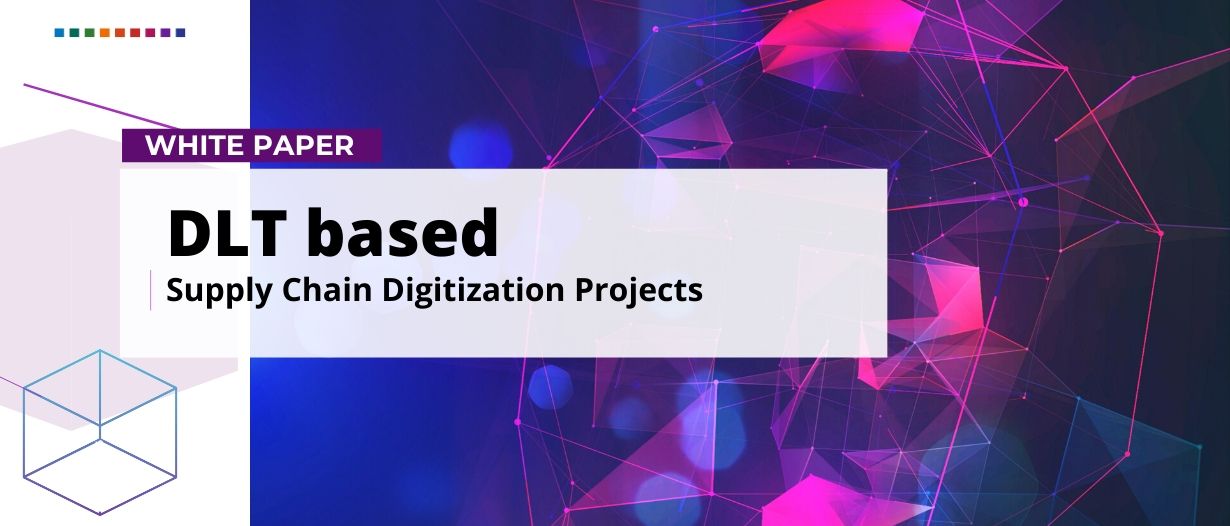The loose notion of a supply chain is as old as trade itself. To help modernize the concept and provide firms with greater transparency, efficiency, and traceability, several innovative projects have been working towards the goal of supply chain digitization.
Tradelens
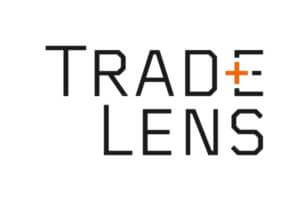
“TradeLens is working cooperatively to ensure standardization of information across the supply chain.”
-Daniel Wilson, Head of Strategy and Operations, Maersk GTD
TradeLens, a collaboration between IBM and Maersk is a trade platform for the supply chain, connecting the entire supply chain ecosystem. The platform is designed to facilitate the sharing of end-to-end supply chain shipping information and documentation across the large number of diverse and interdependent parties involved in typical supply chain transactions. Supply chain information on TradeLens is communicated and stored with privacy and security at the forefront, restricting visibility to authorized parties on the channel. The platform is underpinned by Hyperledger Fabric.
TradeLens has digitized many trade and supply chain processes in either Proofs of Concept, Proofs of Value, or production environments. They include documentary trade processes, open account processes, marine cargo insurance issuance, Bills of Lading, shipping instructions, Advance Ship Notice (ASN) document creation, and customs clearance documentation creation, among others. These processes have either been done as part of the TradeLens offering or through third parties in the TradeLens Marketplace. Many of these documents and business process automations are done leveraging the TradeLens blockchain, as well as more typical cloud-native APIs. Blockchain technology brings three key elements: an immutability of information without trust of a centralized, vulnerable information keeper; management of identities across businesses and business networks; and the ability to leverage smart contracts to automate information and securely store data for easy verification.
The current TradeLens ecosystem consists of various organizations including carriers, ports, terminal operators, and freight forwarders. To date, over 150 ecosystem members operate on TradeLens, with a focus on containerized shipping volumes. The platform has support from two thirds of container shipping lines globally, over 80 terminals and ports, 17 customs authorities, dozens of inland providers, many corporates and banks, and several leading global and regional freight forwarders live on the platform. As of November 2019, more than two million events and over 15,000 documents are transmitted through the platform daily.
Minehub

Minehub runs on a permissioned blockchain, powered by Hyperledger Fabric, and is designed to be the digital supply chain platform for the mining and metals industry. The first solutions built on this platform tackle the digitization of mine-to-market provenance, contract management, credit management, invoice, and payments, track and trace, mine performance-monitoring and data driven insights. By digitizing the supply chain, Minehub post-trade solutions can increase the level of automation, reduce operational and fraud risk, and increase the speed of settlement. This creates the opportunity for transformative efficiencies and cost reductions throughout all aspects of trading operations and risk management.
Minehub has been working closely with IBM and law firm White & Case to develop the platform. At the time of writing, the consortium members include leaders across the mining supply chain such as ING Group, Wheaton Precious Metals, Ocean Partners USA, Kutcho Copper, Capstone Mining, and, most recently, Kimura Capital, which joined the consortium in October 2019.
The Canadian-headquartered consortium officially went live on October 15, 2019 and while anticipation remains high, at the time of writing no live transactions have been publicly announced.
Global Shipping Business Network (GSBN)
“A well-governed blockchain consortium where industry stakeholders collaborate and innovate is vital to the success of trade digital transformation.”
-Lionel Louie, CCO, CargoSmart Limited
The Global Shipping Business Network (GSBN) is a joint venture blockchain consortium, convened by CargoSmart Limited, aimed at accelerating digital transformation of the shipping industry. This is done by bringing together industry leading global carriers and terminal operators. The consortium, which will be set up as a not-for-profit joint venture, will establish strong data management and governance frameworks, including those related to data privacy and transparency, once it has successfully undergone its legal and regulatory approval. The group plans to invite stakeholders in supply chain and across other industries to form Industry working groups to collaborate and come up with innovative ways for the industry to leverage the underlying cross-industry Blockchain Schema and facilities.
The CargoSmart solution platform is built on top of the Hyperledger Fabric DLT framework. Within the solution there are three main layers: a business API layer, a platform service layer, and a blockchain persistence layer. The business API provides an entry point for applications to interact with the platform. Once a transaction has entered through the API and been encrypted and committed to the blockchain layer, the platform service will divert the transaction data to the appropriate parties based on the pre-defined data governance rules.
The signatories of the GSBN services agreements intend to fully establish the network in early 2020, subject to all requisite approvals. In the meantime, CargoSmart, the driving firm, is currently piloting a solution for Dangerous Goods Shipping Documentation on the proposed Blockchain platform with several founding members of GSBN. As it stands, the potential founding members for the GSBN include CMA CGM, COSCO Shipping, Hapag-Lloyd, Hutchison Ports, OOCL, Port of Qingdao, COSCO Shipping Ports, PSA international, and Shanghai International Port Group.
ÐΞLIVΞR
ÐΞLIVΞR is a neutral, open platform with a decentralised architecture that seeks to optimise the physical, financial and related information flows within international trade. The platform creates interoperability between various value adding services. The platform supports a number of functions across networks, including document notarization, asset transfer, and double financing prevention. Additionally, ÐΞLIVΞR offers a connectivity layer for service providers and consumers of these services to connect and transact benefiting from the “connect once, connect to many” principle.
ÐΞLIVΞR is an initiative of the Dutch bank ABN AMRO, the Port of Rotterdam Authority and Samsung SDS. In June 2019 the consortium announced that they have completed the proof-of-concept phase. They have successfully tracked and instantly financed a shipping container on the trade lane between South-Korea and the Netherlands using the automated and paperless blockchain-based platform. Today, the consortium analyses the results of their pilot stage. They are writing an investment memorandum to secure funding for a commercial launch in the second half of next year.
Open Trade Blockchain

Open Trade Blockchain (OTB) is a blockchain platform for the trade communities powered by Global eTrade Services (GeTS), a Singapore-based FinTech firm. The platform provides the basic utilities of trade document registration and verification. This is intended to improve efficiency and drive down the costs related to document exchange.
The platform works by allowing partner nodes to register an original trade document which can then later be confirmed as an original. To date, OTB has four partner nodes, supports 15 document types, and has registered over 2.5 million different files.
Vakt
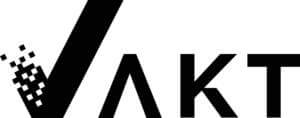
Vakt, powered by Quorum, is a blockchain-based post-trade platform designed for the oil industry. As a post-trade platform, it connects key parties to trades allowing them to handle every step between the initiating trade and final settlement. This includes deal recap, confirmation, contract, logistics, and invoicing. Essentially, Vakt’s management of the post-trade cycle eliminates reconciliation and paper-based processes.
Partnering with Komgo’s commodity trade financing network, Vakt will concentrate on the actual raw material transaction, allowing for deals to be processed through the platform. It was originally launched in 2018 by nine of the largest players in global energy commodities trading. Since its launch, it has grown to 12 major shareholders, seven of whom it shares with the Komgo network.
eCOM Registry
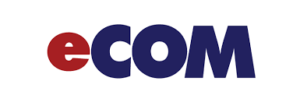
“The swing to open account trade puts the power in the hands of the buyers, so sellers need quick and simple access to trade finance so they can better manage their cash flow and stay competitive. ”
-Horace Mak, Managing Director, eCOM Asia
The eCOM Registry, created by eCOM Asia, is a platform for the data economy that allows participants to create trusted data, maintain ownership and control of their data, and to securely share the data with other authorised participants. The solution uses proprietary DLT combined with tools like BigChainDB, Tendermint, and MongoDB, to record the signed metadata and hash of Trade Documents as assets to create trust and to facilitate the secure exchange of data. This is achieved through an enterprise deployed private registry of trade data and subsequent sharing of trusted data to a shared registry for discovery by other actors.
The eCOM registry is currently being used as a trading and finance platform for one of China’s largest food importers. The platform allows the importer to use their own liquidity to finance Chinese distributors using preferential financing rates outside of China. They offer up to 90 per cent funding from order and shipment to China, with the balance paid by the distributor when they collect the product. eCOM’s DLT solution provides the tracking, visibility and trust across the import-export trade documents so they can manage the financing process and risk.
The eCOM registry is also employed in one of China’s largest free trade zone platform modernization projects. The project, consisting of the free trade zone and around 9000 traders, involves API enablement of legacy platforms to open up data for reuse.
These projects, along with some others, are the current active projects that eCOM Asia has disclosed to date focusing on International Trade. The company, initially founded in 2006, is targeting other initiatives in the trade space, and plans to extend the solution for use cases into other industries.
Bolero International

“ Only by cooperation between different platforms, solutions, and parties a change can be realized.”
Jacco de Jong, Global Head of Sales, Bolero International
Bolero is a non DLT, messaging based platform which allows for secure communication between various Trade parties like shipping carriers, corporate clients, and banks. Every party on the Bolero network can send and receive trade transactions using the Bolero messaging protocols. The company has also been fundamental in spearheading the development and striving for the adoption of electronic bills of lading (eBL). Their technology ensures that eBLs are created and transferred between various parties in a trade transaction and their title registry modules maintain eBL title throughout the transaction lifecycle.
While Bolero’s original founding in 1998 long pre-dates the era of DLT, the firm has recognized the growing importance of the new technology in the space and has been working heavily with it. Bolero’s technology is blockchain agnostic and their aim is to interoperate between different blockchain platforms as well as non-blockchain platforms allowing access to Bolero services through open APIs.
In November 2018, following a series of pilots to integrate Bolero’s eBL service with the trade finance consortium Voltron, the first successful integration was achieved by participants HSBC and ING. Bolero seeks to develop its technology to be able to operate with any other trade digitization initiative, regardless of its underlying technology.
Wave
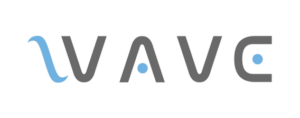
Wave is a secure All-In-One communication protocol designed to meet the special needs of the B2B community. The Fintech’s service supports all types of trade and trade finance activities including the digitization of original documents such as bills of lading, bills of exchange, and promissory notes among others as well as normal documents and messages. Having developed its proprietary blockchain in house, Wave says that they selected the technology for its ability to guarantee the uniqueness of documents, ensuring that a holder of a bill will not be able to use the same bill twice. Furthermore, DLT is the only technology that allows the digitization of Bills while ensuring the full negotiability, transferability, and anonymity of the holder.
Wave works by providing the base communications for message and documents exchange and either connects parties directly for documents exchange or delivers the documents to the different trade finance service providers. Wave is used as a network of networks for interoperability, in the sense that it can be used to connect various parties like the carriers, banks, cargo owners, and platforms.
Since founding in 2015, Wave completed the world’s first live pilot using the application in 2016 together with Barclays Bank, Ornua, and more. Since then, Wave managed to complete the first pilot in the maritime shipping industry together with the Israeli shipping company ZIM and Hong Kong, China-based logistics firm Sparx Logistics. Today, the solution is rolled out with Zim shipping Line and has completed further pilots with 67 banks, 5 Carriers, and hundreds of corporates. So far the company has not announced any further product development but has articulated its intent to remain focused on developing the Wave network and connecting the B2B world.
essDOCS
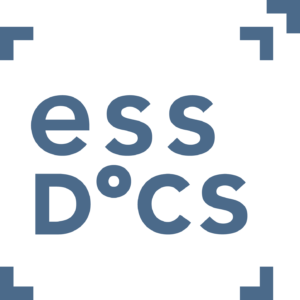
essDOCS is a paperless, digital trade solution. The company, which has several unique offerings, is best known for its CargoDocs and DocEx solution which is all about electronic Bills of Lading (eBL), electronic warehouse warrants, and technology in a legal solution to facilitate cross border paperless documentation.
With 45,000 customers using their solution, essDOCS is tackling the problem of siloed digital islands by using APIs to connect across different platforms and across different consortium solution sets. Doing this essentially allows them to connect across the whole supply chain. To help achieve this supply chain-wide reach, essDOCS has partnered with around a dozen DLT-based consortium including Voltron and Vakt.
The company has been working heavily on developing their new Cmatch product which they intend to launch by the end of 2019 as a replacement to the SWIFT TSU which is being decommissioned next year.
CargoX

CargoX is an independent supplier of an on-chain bill of lading powered by the Ethereum network. They have created a Blockchain Document Transaction System (BDTS) open source protocol to tokenize, encrypt, and transfer the bill of lading along with any additional documents required for trade processes. The system API is enabled for integrations and is interoperable with other blockchains, meaning it can be integrated into other ERP systems to supplement their functionality. The authors note that according to information on the CargoX website, their blockchain-based bill of lading solution is live.
Enigio Time

“Technology will help to digitize physical trade flows as well as document flows.”
-Gunnar Collin, Client Executive,Enigio
Enigio is a technology company offering solutions ensuring integrity and provenance of all types of digital data and information.
The Enigio trace:original solution makes it possible to issue, accept, preserve and possess an original document in digital form. The created digital original is fully traceable, protected, and immutable but still transferable. Any copy of the trace:original document can be distinguished from the original when validated. The solution makes use of DLT as an assurance mechanism – “a mathematical notary service”. According to Enigio, their Enigio trace:original solution meets the requirements for trusted electronic services according to the European eIDAS Regulationand is compliant with any General Data Protection Regulations.
Enigio’s trace:original solution can be used for any type of documents and is a unique technology for freely negotiable instruments, documents of title and certificates in compliance with existing industry practices, laws and regulations.
Most recently, Enigio, which was originally founded in 2012, has been supporting the International Trade and Forfaiting Association (ITFA) with a pilot to enable trading counterparties to move away from paper by relying on digital negotiable promissory notes and bills of exchange, whilst retaining the undoubted benefits of bills of exchange and promissory notes. This initiative, which was launched at the ITFA annual meeting in September 2019, will help to define market-level usage guidelines, document tags, rules, and legal opinions for digital negotiable instruments.
CamelOne
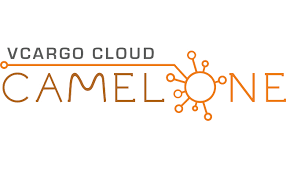
CamelONE is a platform that integrates and connects all stakeholders in the supply chain. The initiative, spearheaded by Singapore-based vCargoCloud, seeks to digitize the entire end-to-end process for trade and supply chain by creating an ecosystem for interaction between government agencies, traders, freight forwarders, warehouses, airlines, shipping lines, banks, financial institutions, and cargo insurance companies. At its core, CamelONE consists of a trade facilitation platform, a cargo community platform, and industry specific eCommerce verticals.
A key feature of CamelONE is the idea that it has been designed and implemented on open industry standards allowing it to be fully technology vendor agnostic. This open nature is a crucial aspect contributing to the platforms scalability and general ability to connect all players in a supply chain.
ReChainMe
ReChainME is a permissioned blockchain platform initiated by Landmark Group, a multinational conglomerate based in the UAE. It ensures seamless connection amongst key participants involved in supply chain, resulting in greater transparency, speed and accountability.
In June 2019, Landmark Group and HSBC completed a first-of-its-kind transaction that connected ReChainME and Voltron, two independently built blockchain platforms powered by Corda, proving their interoperability and showing how collaborative technologies can further accelerate international trade in the future. The transaction involved a shipment from Hong Kong for Babyshop, Landmark Group’s family retail brand in the United Arab Emirates (UAE). All the key participants along the logistical supply chain could view documents and track progress of the shipment in real-time, thereby reducing the overall time to complete the transaction by up to 12 days. It also helped reduce the need for paper, as retail supply chains typically involve large numbers of paper documents that are screened and updated at multiple touch points.















